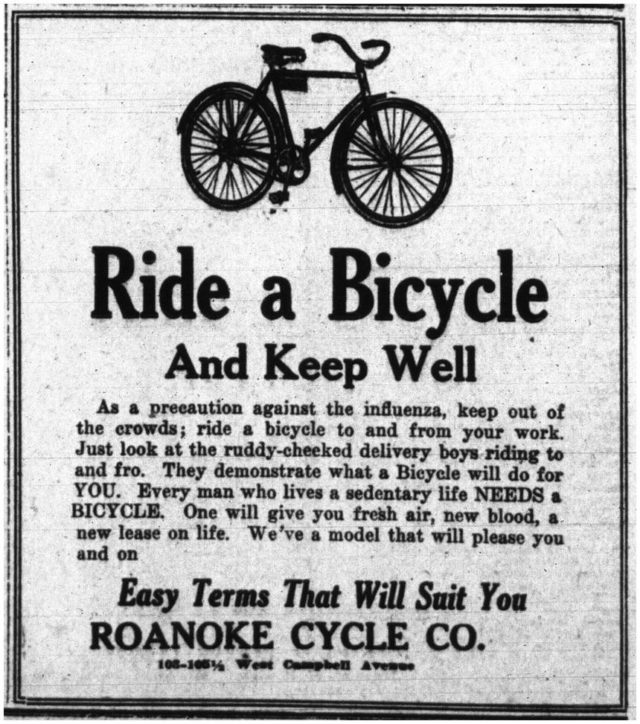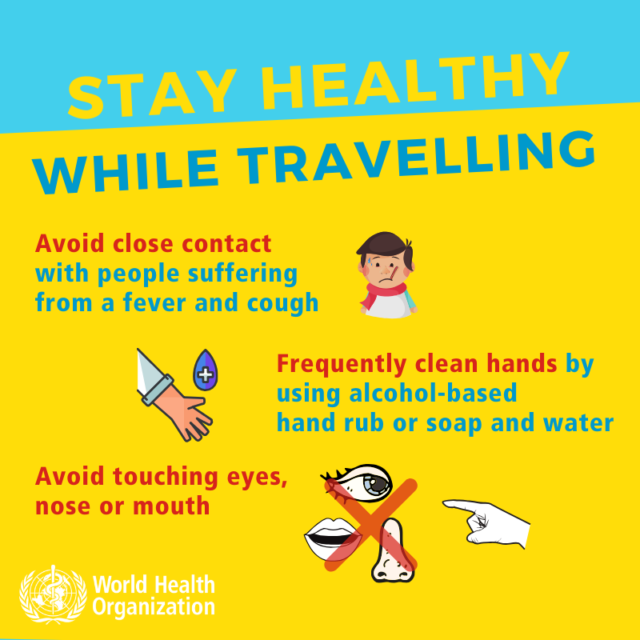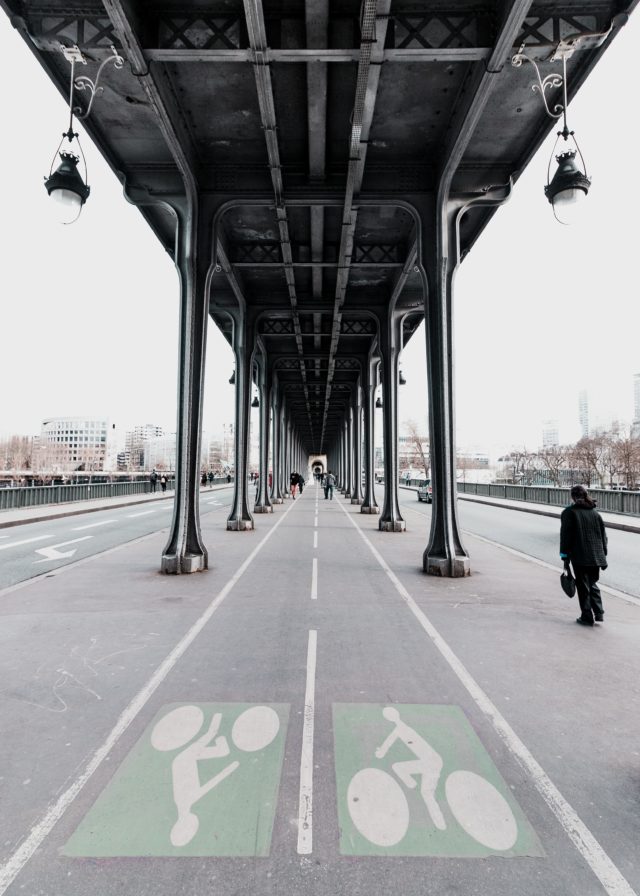Coronavirus: When All Else is Contaminated, Rely on Bike Share
by Farrah Daniel, Better Bike Share Partnership Writer
March 13, 2020
 This ad from 1918 warns the public of Spanish influenza and notes the benefits of using a bicycle. Coincidentally, this 102-year-old message is still fitting for the outbreak of COVID-19 — not much has changed at all.
This ad from 1918 warns the public of Spanish influenza and notes the benefits of using a bicycle. Coincidentally, this 102-year-old message is still fitting for the outbreak of COVID-19 — not much has changed at all.
Each passing day, hysteria ascends within the United States as citizens and government agencies attempt to head off the Coronavirus disease (COVID-19). Between quarantines, merchandise shortages (e.g. hand sanitizer, toilet paper, water, hand soap) and major events being canceled across the country, the pandemic frenzy is besting the contagious virus response plans of public transit agencies across the U.S.
COVID-19 is the cause of an outbreak of respiratory illness and was first detected in Wuhan, Hubei province, China on December 31, 2019.
While COVID-19 is a new strain of coronavirus that has not been previously identified in humans, it’s important to know coronaviruses are a large family of viruses that are known to cause illness ranging from the common cold to more severe diseases such as Severe Acute Respiratory Syndrome (SARS) and Middle East Respiratory Syndrome (MERS).
Today, the U.S. counts more than 1,000 people infected with coronavirus — a number that doesn’t include those with pending test results.
This scary reality reasonably results in the fear of being in public spaces and sharing close quarters with strangers, especially on public transportation. For instance, a BART spokesperson told the San Francisco Examiner on March 9 that ridership dropped around 8 percent from the week before.
Additionally, New York City’s mayor and the governor issued updated guidelines for residents asking them to try to avoid crowded subway cars or work from home and to consider biking or walking to work. This came two days before an announcement on March 11 that the city has 46 confirmed cases of the virus, a dramatic increase from 24 hours prior when there were only 25 cases.
Commuting During a Pandemic

Source: World Health Organization
It’s uncertain (and unlikely, hopefully) whether cities will resort to shutting down public transportation to prevent an uptick of infected people, but remember that bike share is always an option.
In fact, Chinese online magazine Abacus News reported that commuters are returning to bike sharing because “it allows them to ride in open space without any human contact.” Plus, an expert at the Chinese Center for Disease Control and Prevention recommends bike share as the form of public transportation that poses the lowest risk of getting infected with the virus.
Still, you must exercise caution.
If possible, walking or using your own bike are always safe bets; otherwise, heed these helpful tips when using bike share or public transportation:
- Avoid soft handlebar grips in a shady space and choose bikes with harder ones that have been out in sunlight.
- Sanitize the handlebars, wear gloves, or again, just wash your hands once you arrive at your destination.
- If possible, commute during off-peak times when people aren’t packed in quite as densely.
- Wash hands with soap and water for at least 20 seconds multiple times a day.
- Avoid touching eyes, nose and mouth with unwashed hands.
- Avoid close contact with people who are sick.
- Cover your cough or sneeze with a tissue, then throw the tissue in the trash — you can also cough/sneeze into your elbow! Never into your hands.
- Clean and disinfect frequently touched objects and surfaces.
CityLab’s Sarah Holder explains that coronavirus spreads via viral droplets, or the mucus sprayed into the air when someone infected coughs or sneezes. You can get it by breathing those droplets in, ingesting them, or touching a surface that’s been contaminated. According to the Centers for Disease Control and Prevention (CDC), the virus can live on certain surfaces for up to 24 hours.
Do your best to avoid “high-touch” surfaces that pose risks: subway and bus poles or straps, e-bike and e-scooter handlebars, doorknobs, trashcan lids, and especially other people’s hands.
Jason Farley, a nurse practitioner at the Johns Hopkins School of Medicine’s infectious diseases division shared with CityLab that any kind of alcohol-based gel or hand-washing product can mitigate the potential of exposure — carry some with you on your commute to scrub surfaces down before you touch them and sanitize yourself after.
Lastly, please don’t ride public transportation if you’re experiencing COVID-19 symptoms. Seek medical attention if you have reason to believe you have been exposed to coronavirus or influenza, and call your healthcare provider before visiting a healthcare facility.
Two Wheels Instead of Four

Source: Grillot Edouard
To gauge how New York bicyclists felt about the aforementioned safety recommendations, Streetfilms, an organization for educational films about sustainable transportation, spoke to commuters near the Queensborough Bridge to ask whether their bike use was due to the virus or personal preference. Check out these interesting reactions:
- “There’s no way you’re going to get sick on the bike, you know? Everybody should be biking; it’s the best alternative to [commuting.]”
- “Cycling is one of the things that we can do that can make a big difference for everyone.”
- “Every day on the bike I feel you’re healthier than on the subway or any other form of commuting; it just gets you going. Why not ride a bike, get fresh air and not have anybody sneeze on you?”
While many noted that bike share and using personal bikes have long been part of their commutes as it’s much healthier and safer than the subway, some concerns were raised as well.
- “It was crowded. I think there needs to be more space on the Queensborough Bridge. They should open up the other roadways — too many people, people walking, close calls and I think it’s only going to get worse.”
Make the choice that works for you, but if bike share is accessible near you, it can be an excellent tool for commuting.
Public health authorities are discovering more every day and will continue to share updates. In the meantime, be cautious and prepared.
The Better Bike Share Partnership is a JPB Foundation-funded collaboration between the City of Philadelphia, the Bicycle Coalition of Greater Philadelphia, the National Association of City Transportation Officials (NACTO) and the PeopleForBikes Foundation to build equitable and replicable bike share systems. Follow us on Facebook, Twitter and Instagram or sign up for our weekly newsletter. Story tip? Write farrah@peopleforbikes.org
